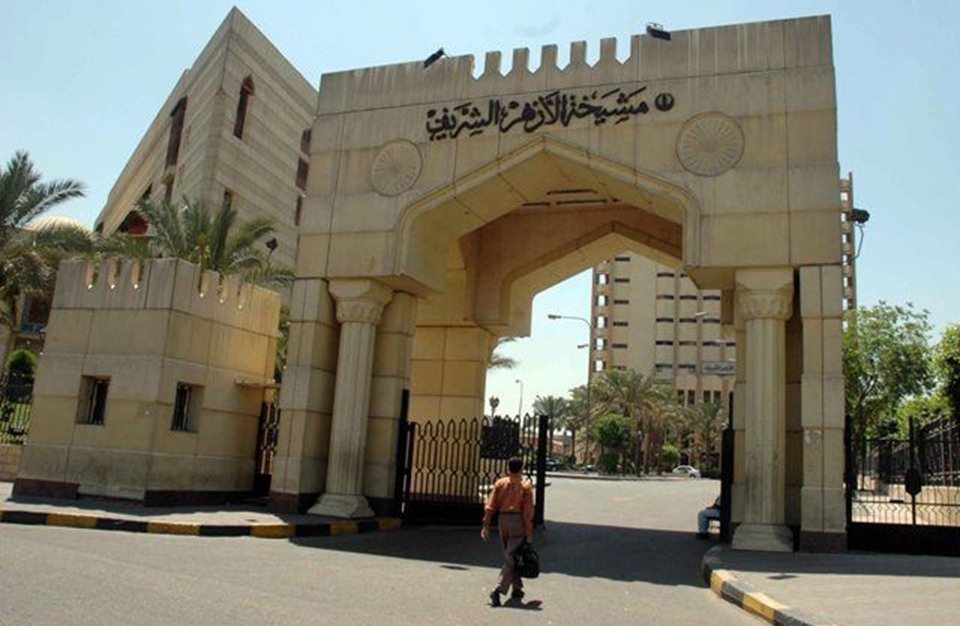Al-Azhar Legislates: A New Bill on Personal Status Enrages Egypt’s Parliament

The personal status bill that al-Azhar University’s Council of Senior Scholars itself prepared after ignoring the proposals that Parliament presented to it has provoked widespread controversy within Egypt’s legislative and legal circles.[1] Over the last three years, Parliament sent several bills creating a new personal status law or amending the current one to al-Azhar to obtain its juristic view on them[2] as it is the primary reference [al-marja’ al-asasiyy] for theology and Islamic affairs per the Constitution.[3] Specifically, Parliament sent both the proposal by MP Mohamed Fouad and a tenth of Parliament’s members[4] and the proposal that the National Council for Women prepared at the behest of the Prime Minister’s Office,[5] but the Council of Senior Scholars gave no official responses to them and issued no statements about their compatibility with Islamic Law. Rather, it worked on preparing its own complete bill addressing all personal status matters, such as marriage and divorce, paternity, overall maintenance [nafaqa], and guardianship.[6] This move drew many criticisms and reservations, with some considering it an unjustified encroachment by al-Azhar on legislative authority and a contravention of the civil state principle adopted by the Constitution. While some thought that al-Azhar would back down from the proposal following this criticism, it doubled down and published the entire bill in Sawt al-Azhar, its official newspaper, in October, stirring widespread discontent.[7]
The personal status law has been one of the laws stirring the most controversy amongst the Egyptian public in recent years because by nature it directly affects the lives of millions of Egyptian families.[8] Many voices have called repeatedly for an amendment to the current law because there are multiple (four) laws governing personal status in Egypt and some were adopted almost a century ago.[9] In this article, I will shed light on the issue of al-Azhar’s submission of a bill and the extent to which it conflicts with Parliament’s exclusive competence to legislate in the framework of the 2014 Constitution. I will also discuss the bill’s content and highlight the most important contentious issues in it, issues that have captured the Egyptian public’s attention during the last two months.
Al-Azhar and Legislation: A Consultative Reference or Something More?
The personal status law derives its provisions directly from, and may not violate, Islamic Law.[10] As Article 7 of the Constitution stipulates that al-Azhar is an independent Islamic body, with exclusive competence over matters of theology, it issues authoritative opinions when it comes to any Islamic matter. Parliament’s presentation of personal status bills to al-Azhar to obtain its opinion is constitutionally justified, the goal being to ensure that they do not contravene Islamic Law. Similarly, Parliament’s internal statute stipulates that it must obtain the opinion of the bodies and authorities whose opinion the Constitution requires be obtained on the bills that regulate them or pertain to their areas of work.[11] Even under the 1971 Constitution, and hence before the adoption of al-Azhar as a religious reference via the 2014 Constitution,[12] parliamentary precedent involved sending all things relating to personal status to al-Azhar to obtain its juristic opinion before adopting them.
At the same time, Article 122 of the Constitution governs the regulatory framework for proposing bills, exclusively entrusting this competence to the president of the republic, the Council of Ministers, and the MPs. This leaves no room for legal interpretations in this regard. From this procedural perspective, no institution or body may present a bill except for those parties. Al-Azhar knows this well, as Grand Imam of al-Azhar Ahmed el-Tayeb stated that “al-Azhar is not a body for legislation nor adopting laws” and added that, “The authorities asked for an opinion … and our proposed bill is for debate in Parliament and society”.[13]
In my opinion, al-Azhar’s move to present an entire personal status bill instead of merely commenting on the bills sent to it is the main cause of the undisclosed conflict between al-Azhar and Parliament. It also indicates intent on al-Azhar’s part not to allow the passing of any views that go against those of the Council of Senior Scholars when it comes to personal status law. Al-Azhar has not claimed the right to legislate, but agreeing to discuss the bill it presented (which is illegal from a procedural perspective) would put Parliament in a difficult position before public opinion because many people would consider any criticism or amendment directed at the bill to be akin to doubting and criticizing al-Azhar itself as an independent religious institution. In addition, al-Azhar is marketing the perspective that it must “consent to” or “adopt” the new law’s provisions rather than merely giving its juristic opinion on some of them. The signs of this emerged during the media debates over the past two months when el-Tayeb responded to these criticisms by stressing that “al-Azhar will not leave the personal status law to just any person”[14] after a number of MPs adopted another perspective holding that al-Azhar’s opinion is merely a consultative opinion for Parliament to accept, partially accept, or completely ignore.
Al-Azhar’s arrogance in handling the contentious issue of the personal status law can only cause an impasse that could indefinitely block the debate of a law that millions of Egyptians have for years awaited. From another angle, this dispute constitutes a pivotal break in the relationship between al-Azhar as a religious institution in charge of affairs related to preaching [da’wa] and Islamic sciences, and the state as a set of legislative and executive institutions. This is because the interpretation of al-Azhar’s function as a “reference”, as stipulated in the Constitution, could have many consequences that could reshape relations of power and authority within the Egyptian state as a whole, as both sides of the dispute are very aware.
Al-Azhar’s Personal Status Bill: Outdated Language and a Reaction to Women’s Rights
According to the grand imam’s statements, the primary goal of al-Azhar’s proposal is to create a discussion not only within Parliament but also among all classes of society.[15] Hence, I must shed light on the proposal’s main characteristics and highlight the most important articles that could draw many criticisms and reservations. Some even constitute a reaction to a number of previous legislative achievements, particularly with regard to women’s rights.
Firstly, the proposal expresses the confusion afflicting the al-Azhar establishment in general when it comes to adopting a clear, specific position on women’s rights in general and, specifically, their capacity and right to make their own decisions individually. At the same time that al-Azhar is trying to keep pace with legislative development that meets the demands of the current era, there are many features that show that it continues to adopt old, regressive juristic interpretations. For example, while the proposal stipulates that a marriage is formed upon just the affirmation and acceptance of the two parties to the marriage contract and deprives the wali [a bride’s male custodian, usually her father] of the power to prevent a woman from marrying a man with whom she is satisfied, it also stipulates that this man must be “competent” without clarifying the notion of competence in this situation.[16] The wali is also given the right to object to such a marriage by taking the matter to be decided by the relevant judge, even if the marriage has already occurred. According to Article 6, “The wali has the right to request a judgement to annul the marriage before consummation if the woman marries herself to an incompetent man”. This conflicts with a woman’s most basic rights in choosing her partner, especially if she has reached the age of full legal capacity.[17] Furthermore, while the proposal retains the age of marriage in the current law, namely 18 years,[18] it opened the door for the wali to ask the relevant judge to allow him to marry off the girl before this age in “cases of necessity”,[19] thereby legalizing child marriage.[20]
From another angle, several of the proposal’s articles stirred discontent among a large number of mothers who are anxiously waiting for this law to solve problems of custody, maintenance, and guardianship. For example, the proposal restricts the right of educational guardianship – i.e. the right to choose the nature of the children’s education – to just the father in the event of a dispute between him and the mother.[21] Similarly, the proposal stipulates that the father, and then the grandfather, has guardianship over the minor’s finances without mentioning the mother at all.[22] This conflicts with the philosophy of the law itself, which, in the case of divorce, gives the right to custody of the children to the mother until they reach the age of 15. Hence, at the same time that the mother is fully caring for her children, she cannot choose the nature of their education and has no authority to administer their finances.
In general, the phrasing used in the proposal’s articles is so archaic that they seem like they were written centuries ago rather than to keep pace with the 21st century developments. For example, Article 46 stipulates that, “The wife may leave the house in the circumstances whereunder she is lawfully [shar’an] or customarily permitted to leave, even if the husband has not given permission, without abusing the right”. What law in our current time regulates or places controls on when or how a woman leaves her home? Additionally, while another provision allows the marriage of a “mad or insane person” with the permission of the relevant judge,[23] the same law stipulates that a husband must be of sound mind for divorce to occur.[24] Hence, a woman who marries under this provision will be totally unable to request a divorce.
At the same time, the proposal tries to address some problems preoccupying millions of Egyptian families, particularly those related to custody of children after divorce. It stipulates that, out of consideration for the rights of both parties, children subject to custody must be added to the lists of people prohibited from traveling abroad.[25] This provision is an attempt to curb the phenomenon of fathers taking their children abroad to prevent the mothers from exercising their right to custody and care of the children. The proposal also adds the father to the list of people who have the right to custody of the children if something prevents the mother from performing this role. The current law limits this right to the mother and then female relatives without mentioning the father at all – a provision whose abolishment millions of fathers have been demanding for many years.[26] The proposal also addresses the problem of establishing paternity, which is one of the issues that most threaten the future of thousands of children of unknown paternity in Egypt. It stipulates that in the case of denial or dispute, paternity may be established by all scientific means (such as DNA testing), and it obliged the relevant authorities to select a random four-part name [conventionally composed of a person’s given name, the names of their father and grandfather, and their family name] for anyone of unknown fatherhood.[27] Additionally, the proposal addresses the problem of delayed justice in personal status cases, which sometimes remain pending before the courts for many years. It stipulates that all cases filed under this law are urgent proceedings and must be adjudicated within 30 days of filing.[28]
Conclusion
Nobody can predict how long the current exchange of statements between al-Azhar and the MPs over the permissibility of al-Azhar submitting a personal status bill will last. Each side adopts a different interpretation of the Constitution that justifies and legitimizes its stance, while the sole loser is the thousands of Egyptian families that are still waiting for the law, which has been delayed for many years, to be discussed. But undoubtedly, the provisions of the proposal prepared by al-Azhar’s Council of Senior Scholars would not pass through Parliament easily if it were discussed, irrespective of the side presenting it. Hence, the parliamentary arena is expected to witness broad discussions and debates about this proposal’s provisions during the next few weeks.
This article is an edited translation from Arabic.
Keywords: Egypt, Personal status law, Al-Azhar, Parliament
[1] “Qanun al-Ahwal al-Shakhsiyya Yufajjiru Azma Bayna al-Azhar wa-l-Barlaman al-Misriyy”, Arabi21, 3 November 2019.
[2] MP Mohamed Abu Hamed’s statements in the program al-Qahira al-An on Al Hadath, Al Arabiya, 5 November 2019.
[3] Article 7 of the 2014 Constitution.
[4] “'Tashri’iyyat al-Barlaman' Tabda’u Munaqashat Qawanin al-Ahwal al-Shakhsiyya al-Ahad al-Muqbil”, Youm7, 9 January 2019.
[5] “Maya Mursi: Talaqqayna 140 Muqtarahan wa-‘Uqida 70 Liqa’an Hawla Ta’dilat Qanun al-Ahwal al-Shakhsiyya”, Sada Elbalad, 16 January 2019.
[6] “Qanun al-Ahwal al-Shakhsiyya al-Muqaddam min al-Azhar li-l-Nuwwab.. al-Nass al-Kamil”, Sada Elbalad, 25 October 2019.
[7] Sawt al-Azhar, released on 30 October 2019, p. 4-7.
[8] “Qanun al-Ahwal al-Shakhsiyya fi Misr Nitaj Nusus Muba’thara Tatattalabu I’adat al-Nazar”, Al Arab, 13 July 2017.
[9] Law no. 25 of 1920 and Law no. 25 of 1929 on personal status, in addition to the amendments made to them by Law no. 100 of 1985 and Law no. 1 of 2000 regulating some circumstances and procedures of litigation in personal status matters.
[10] Mostafa Mahmoud, “The Persistence of Discrimination in Egypt’s Personal Status Laws”, The Legal Agenda, 11 June 2019.
[11] Article 158 of Parliament’s internal statute.
[12] Article 7 of the 2014 Constitution.
[13] Sawt al-Azhar, issue of 30 October 2019, p. 3.
[14] “Raddan ‘ala al-Intiqadat.. al-Azhar: al-Ahwal al-Shakhsiyya Laysat li-Kull Man Habba wa-Dabba”, Alhurra, 30 October 2019.
[15] Sawt al-Azhar, issue of 30 October 2019.
[16] Article 6 of al-Azhar’s personal status bill.
[17] The age of legal capacity in the Egyptian legal system (per the Civil Code) is 21 years.
[18] Article 31 bis of Law no. 143 of 1994 on Civil Status and the law’s amendments in 2008.
[19] Article 15 of al-Azhar’s bill.
[20] According to the definition of a child in Egyptian law, anyone younger than 18 years is a child. See Law no. 12 of 1996 and its amendments by Law no. 126 of 2008.
[21] al-Azhar’s bill, Article 103.
[22] Ibid., Article 105.
[23] Ibid., Article 16.
[24] Ibid., Article 51.
[25] Ibid., Article 99.
[26] Ibid.
[27] Ibid., Article 86.
[28] Ibid., Article 192.



